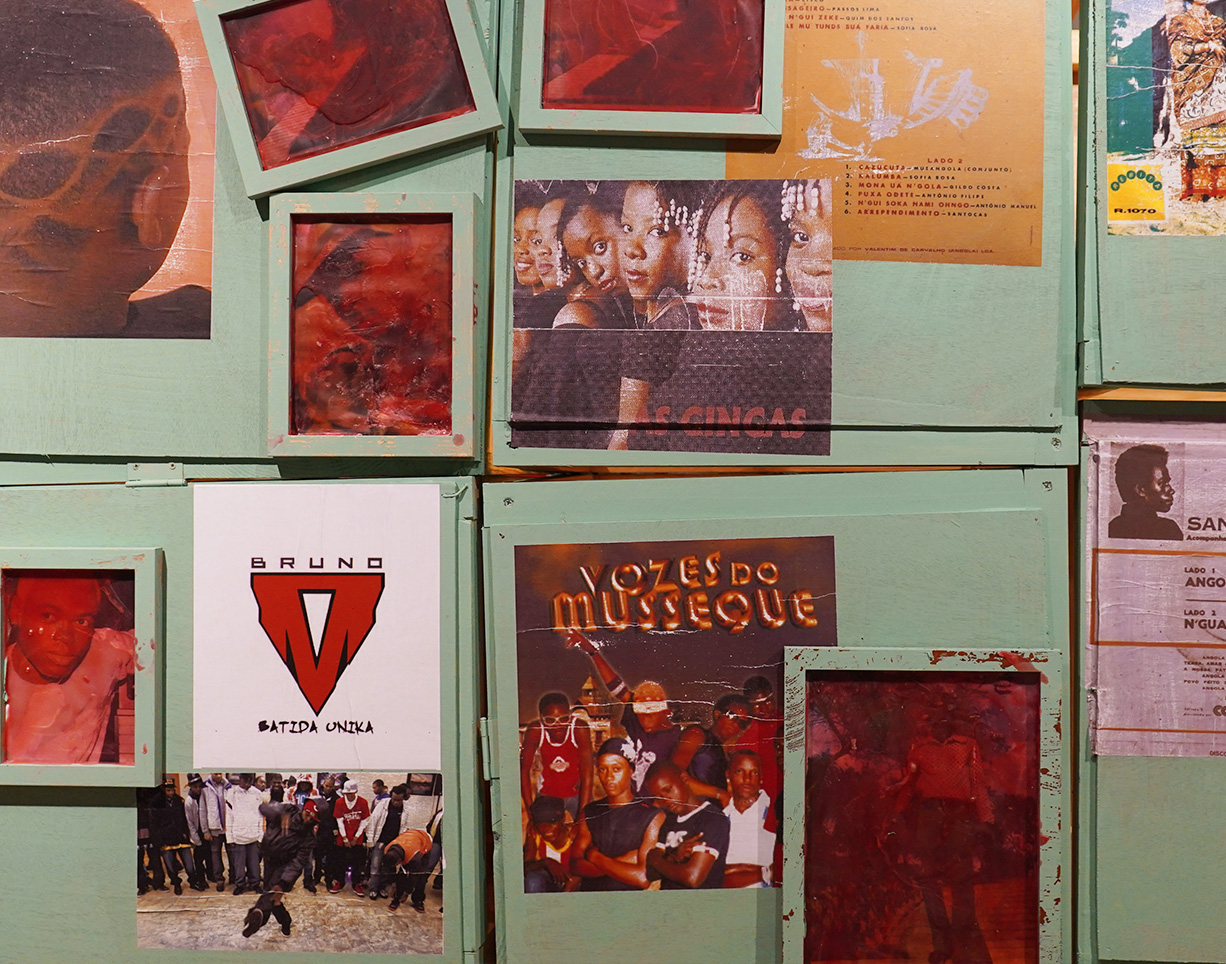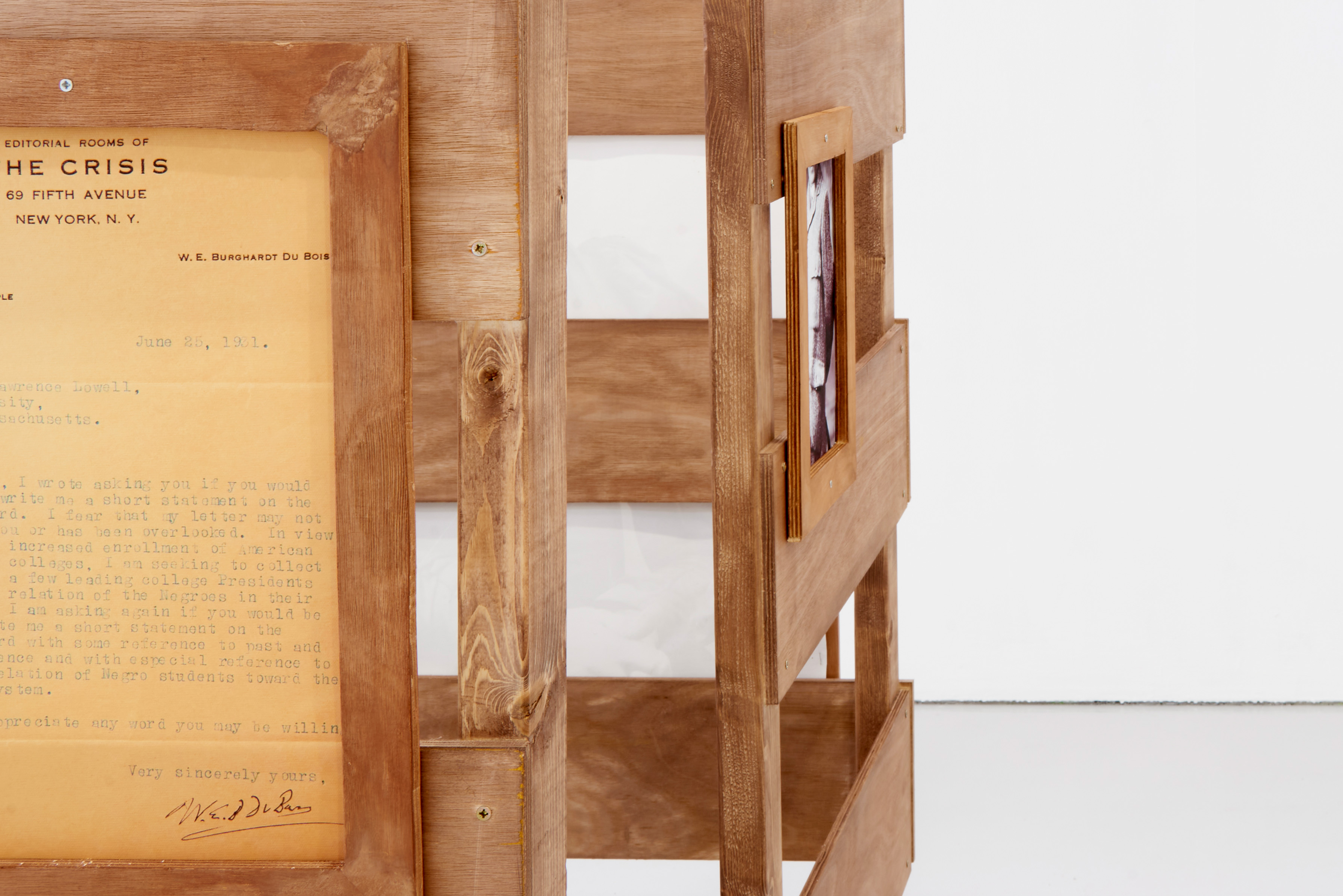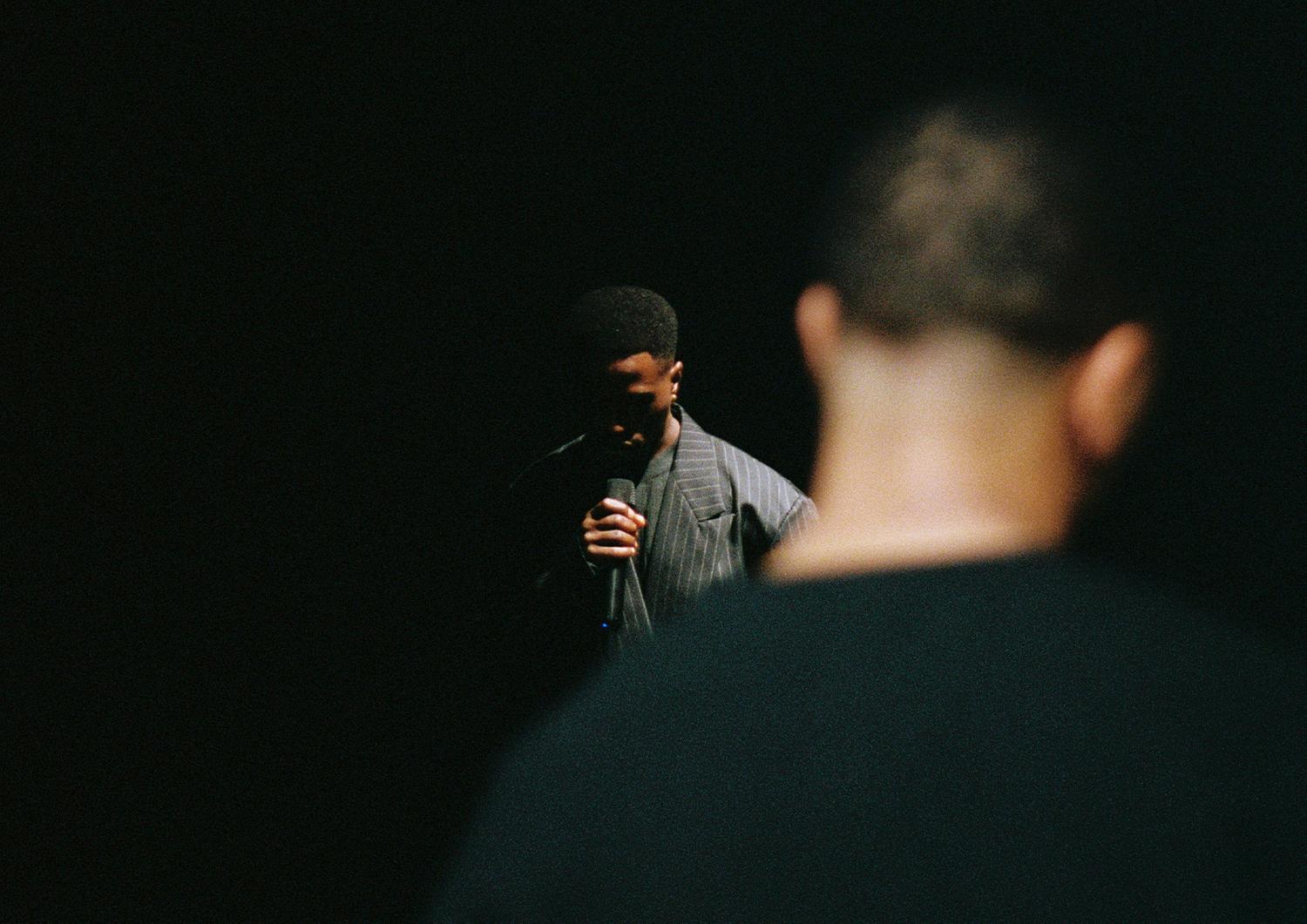Samuel Fosso's 70's Lifestyle (SM34) from https://samuelfosso.com/works/70s-lifestyle-series
Henrique J. Paris
Supervisor
Abstract
Archive Choreography
Enacting Transatlantic Material and Audiovisual Cultures
This project develops from a personal commitment to reorient, through situated spatial practice, the Eurocentric frameworks shaping how memory and knowledge are produced and exhibited within cultural institutions. As an Angolan artist-researcher working between Portugal and the UK, I use multimedia installations, sound-based performances, and still and moving images to interrogate the architectures of authority that structure archives and their regimes of display. My practice proposes embodied methods of intervention and critique, exploring how interdisciplinary work might interrupt the ways colonial subjects are archived and addressed.
The project engages two primary sites: the Monument to the Discoveries in Lisbon and the Victoria and Albert Museum in London. Both institutions function as stages for the construction and reproduction of national identity, imperial symbolism, and historiography. Despite shifts in curatorial agendas and discourses of inclusion, these institutions often continue to reflect Eurocentric paradigms that obscure marginalised narratives. The archival logics they uphold tend to codify material and audiovisual cultures through extractive lenses.
In recent installations and performances (2024–2025), I have introduced gestures such as hums, footsteps, printed matter, and furniture objects to create moments of dissonance and resonance within institutional space. Humming as a Praxis, performed at the Raphael Court (V&A) and the auditorium of the Monument to the Discoveries, used minimal movement and sound to generate acoustic pressure that unsettled the monumental presence of imperial ideology. In Contratos de Salão, exhibited at the Museum of Contemporary Art in Panama, I worked with Angolan discographic and folkloric materials in an installation activated in the museum’s archive room—exploring historical trauma and opacity as strategies to challenge fixed historicist narratives.
The project draws on theoretical works including Michel Foucault’s Archeology of Knowledge (1972), Okwui Enwezor’s Archive Fever (2008), Tina M. Campt’s writings on affect and listening (2017–2021), and Maria Fee’s reflections on hospitality (Beauty Is a Basic Service, 2023). I also engage with artists such as W.E.B. Du Bois, Theaster Gates, and Rosa Barba, whose practices approach archives through spatial and interdisciplinary lenses. These influences frame my work within a broader field of counter-hegemonic archival engagement and contribute to an anticolonial methodology that treats historiography as live and contested.
The aim of this MPhil practice-led investigation is to develop a framework of re-articulation—consolidating artistic and theoretical strategies to produce a body of work that invites critical re-encounters with institutional space. The final presentation will take the form of an exhibition combining still image, installation, and sound composition. Each element will be assembled as part of an “archive choreography,” foregrounding affect, criticality, and shared presence as tools to animate transatlantic material and audiovisual cultures and to interrogate contemporary historicist narratives.
Bio
Henrique J. Paris is a transdisciplinary artist, graduated in Philosophy with film at the University of Hertfordshire. His works cross examine ideas between spatial performativity and the bodily memory: posing questions concerned with visual culture, philosophy, and architecture. Henrique’s ongoing research gathers counter-colonial epistemologies to investigate prospects in world building, image making & knowledge production as disciplines. Often using mediums across design, multimedia installations, and moving-still-images. Past projects include Tactility: Ethics of Cultural Heritage and Land at the V&A Museum in London, Registos Bantu w/ Douglas Hyde Gallery in Dublin, My Ontological Corporeality at Hangar in Lisbon and more.





